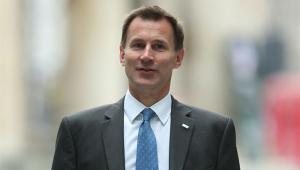In a paper designed to put pressure on the Scottish Government ahead of publication of its budget next month, the Convention of Scottish Local Authorities also demanded an end to the 3% cap on council tax and the introduction of a discretionary local tourist tax.
It warned that the £325m already committed by the Scottish Government for new initiatives in early learning and childcare, free personal care and school counselling could not be funded from the core local government budget.
Councils played a vital role in health and social care, it added, and so should receive a share of the health funding flowing to the NHS in Scotland as a result of increased health spending south of the border following last month’s Westminster budget.
Local authorities have borne the brunt of funding cuts in recent years, the paper said, and the strain placed on essential services could not continue.
While the Scottish budget had fallen in real terms by 0.4%, funding for local government had been cut by up to ten times that figure.
The paper also noted that, under the current system, savings could only be made to 42% of council budgets, leaving services such as economic development, roads, public protection and early intervention disproportionately vulnerable.
Warning that a financial threat to councils would put local and national economies at risk, COSLA president Alison Evison said failure to invest in essential local services would damage Scotland’s communities.
“Councils have made necessary and significant savings but there are now no options left,” she said.
“We cannot be made to cut our essential services without it having a wider, detrimental impact upon our communities.
Evison said councils had no capacity to take on new initiatives, however beneficial, unless the financial settlement was increased accordingly.
Gail MacGregor, resources spokesperson for COSLA, said local government played a crucial role in the Scottish economy as an employer, procurer, investor and strategic leader.
“Through delivery of essential services, we drive economic development and help bring people back into work – these create opportunities for both individuals and communities to thrive,” she said.
“December’s budget must reflect the essential role of local government in our economy and in our communities.”
However, a spokesperson for the Scottish Government said local government had been treated “very fairly” in the face of real terms cuts to the Scottish resource budget.
Councils had been allocated £10.7bn under the current settlement, providing a real-terms boost in both revenue and capital funding for public services, he said.
On the potential for new sources of revenue under a reform of local taxation, he said the Scottish Government had made clear it was “open to further dialogue”.











